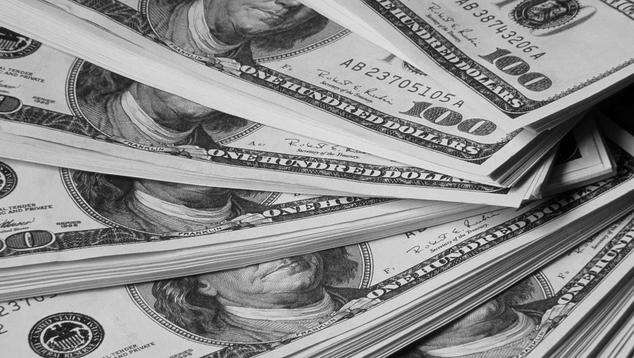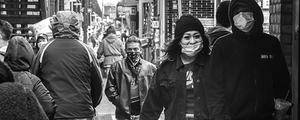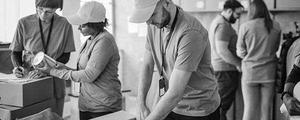Story Highlights
- 39% identify as economically conservative, 38% moderate, 21% liberal
- 35% say they are socially conservative, 36% moderate, 29% liberal
- Majorities of Republicans remain economically and socially conservative
WASHINGTON, D.C. -- At a time when the federal government is spending unprecedented amounts of money to deal with the effects of the coronavirus pandemic, Gallup finds a smaller gap in Americans' descriptions of their economic views than at any point in the past two decades.
Although Americans' ideology on economic issues has consistently tilted more conservative than liberal, the latest gap (18 percentage points) is the smallest recorded by two points. Currently, 39% of U.S. adults say their views on economic issues are conservative or very conservative, 21% are economically liberal or very liberal, and 38% are moderate.
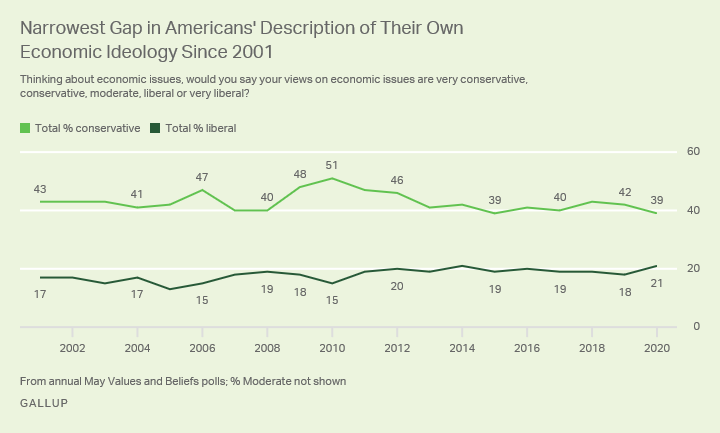
This economic ideology distribution -- from Gallup's annual Values and Beliefs poll, conducted May 1-13 -- is similar to Americans' overall political ideological balance. Thus far in 2020, 38% of U.S. adults describe their political views as conservative, 36% as moderate and 23% as liberal. This center-right bent is essentially unchanged from the 2019 yearly average.
Compared with their self-described ideology on economic issues, U.S. adults are slightly more likely to characterize themselves as liberal or very liberal on social issues (29%). Still, more identify either as socially conservative or very conservative (35%) or as moderate (36%).
| Views on social issues | Views on economic issues | ||||||||||||||||||||||||||||||||||||||||||||||||||||||||||||||||||||||||||||||||||||||||||||||||||
|---|---|---|---|---|---|---|---|---|---|---|---|---|---|---|---|---|---|---|---|---|---|---|---|---|---|---|---|---|---|---|---|---|---|---|---|---|---|---|---|---|---|---|---|---|---|---|---|---|---|---|---|---|---|---|---|---|---|---|---|---|---|---|---|---|---|---|---|---|---|---|---|---|---|---|---|---|---|---|---|---|---|---|---|---|---|---|---|---|---|---|---|---|---|---|---|---|---|---|---|
| % | % | ||||||||||||||||||||||||||||||||||||||||||||||||||||||||||||||||||||||||||||||||||||||||||||||||||
| Very conservative | 8 | 8 | |||||||||||||||||||||||||||||||||||||||||||||||||||||||||||||||||||||||||||||||||||||||||||||||||
| Conservative | 27 | 31 | |||||||||||||||||||||||||||||||||||||||||||||||||||||||||||||||||||||||||||||||||||||||||||||||||
| Moderate | 36 | 38 | |||||||||||||||||||||||||||||||||||||||||||||||||||||||||||||||||||||||||||||||||||||||||||||||||
| Liberal | 21 | 17 | |||||||||||||||||||||||||||||||||||||||||||||||||||||||||||||||||||||||||||||||||||||||||||||||||
| Very liberal | 8 | 4 | |||||||||||||||||||||||||||||||||||||||||||||||||||||||||||||||||||||||||||||||||||||||||||||||||
| GALLUP, May 1-13, 2020 | |||||||||||||||||||||||||||||||||||||||||||||||||||||||||||||||||||||||||||||||||||||||||||||||||||
Between 2001 and 2012, social conservatives regularly outnumbered social liberals, including by 17-point margins in 2009 and 2010. Yet from 2013 through 2018, U.S. adults essentially reached parity in their ideological positions on social issues. Liberal identification has since edged down slightly, while conservative identification has edged up slightly.
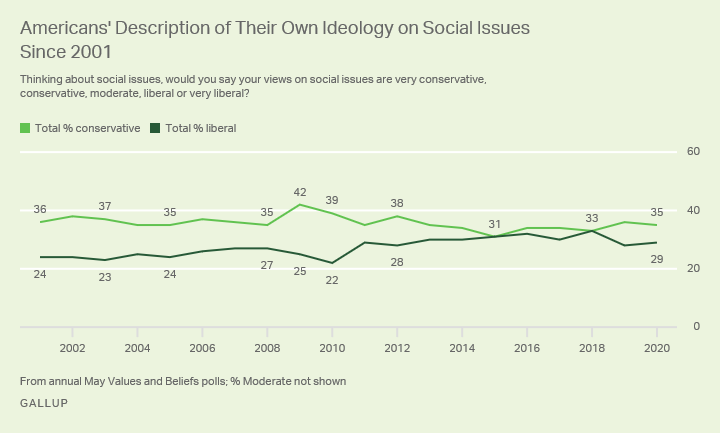
Democrats More Liberal on Social Than Economic Issues
A 47% plurality of Democrats and Democratic-leaning independents describe their views on social issues as liberal, 38% as moderate and 14% as conservative. At the same time, 45% of Democrats consider themselves to be economically moderate, and fewer say they are liberal (37%) or conservative (14%).
Republicans and Republican-leaning independents are more unified in their beliefs, with similar majorities saying they are conservative economically (65%) and socially (61%).
| Republicans/Leaners | Democrats/Leaners | |||||||||||||||||||||||||||||||||||||||||||||||||||||||||||||||||||||||||||||||||||||||||||||||||||
|---|---|---|---|---|---|---|---|---|---|---|---|---|---|---|---|---|---|---|---|---|---|---|---|---|---|---|---|---|---|---|---|---|---|---|---|---|---|---|---|---|---|---|---|---|---|---|---|---|---|---|---|---|---|---|---|---|---|---|---|---|---|---|---|---|---|---|---|---|---|---|---|---|---|---|---|---|---|---|---|---|---|---|---|---|---|---|---|---|---|---|---|---|---|---|---|---|---|---|---|---|
| % | % | |||||||||||||||||||||||||||||||||||||||||||||||||||||||||||||||||||||||||||||||||||||||||||||||||||
| Views on social issues | ||||||||||||||||||||||||||||||||||||||||||||||||||||||||||||||||||||||||||||||||||||||||||||||||||||
| Very conservative/Conservative | 61 | 14 | ||||||||||||||||||||||||||||||||||||||||||||||||||||||||||||||||||||||||||||||||||||||||||||||||||
| Moderate | 28 | 38 | ||||||||||||||||||||||||||||||||||||||||||||||||||||||||||||||||||||||||||||||||||||||||||||||||||
| Very liberal/Liberal | 10 | 47 | ||||||||||||||||||||||||||||||||||||||||||||||||||||||||||||||||||||||||||||||||||||||||||||||||||
| Views on economic issues | ||||||||||||||||||||||||||||||||||||||||||||||||||||||||||||||||||||||||||||||||||||||||||||||||||||
| Very conservative/Conservative | 65 | 18 | ||||||||||||||||||||||||||||||||||||||||||||||||||||||||||||||||||||||||||||||||||||||||||||||||||
| Moderate | 26 | 45 | ||||||||||||||||||||||||||||||||||||||||||||||||||||||||||||||||||||||||||||||||||||||||||||||||||
| Very liberal/Liberal | 7 | 37 | ||||||||||||||||||||||||||||||||||||||||||||||||||||||||||||||||||||||||||||||||||||||||||||||||||
| GALLUP, May 1-13, 2020 | ||||||||||||||||||||||||||||||||||||||||||||||||||||||||||||||||||||||||||||||||||||||||||||||||||||
The fact that a higher proportion of Republicans identify as conservative on economic issues than Democrats identify as liberal on these issues accounts for the conservative bent in Americans' overall position on economic issues.
Since 2001, Democrats have become less likely to identify as economically conservative, while consistently robust majorities of Republicans have done so.
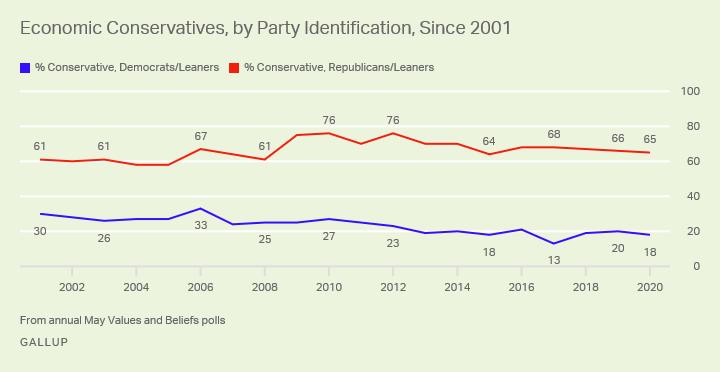
View complete question responses and trends (PDF download).
Learn more about how the Gallup Poll Social Series works.
